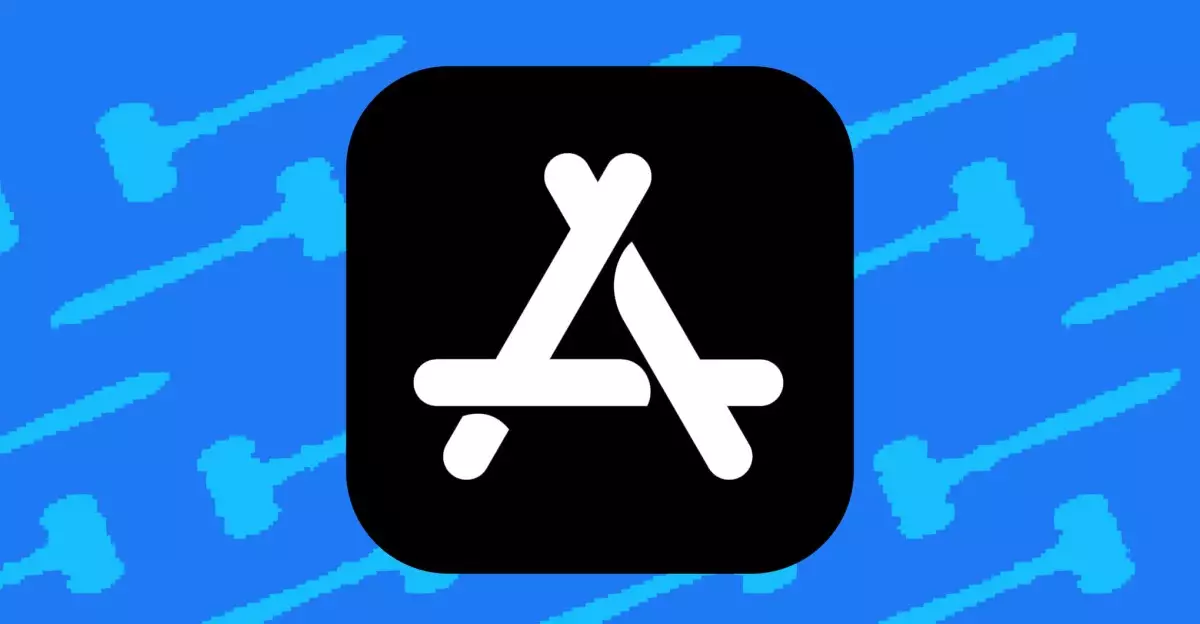The tech world continues to buzz with the on-going conflict between Epic Games and Apple Inc., a situation that has brought the intricacies of app store governance to the forefront of public awareness. Recently, Epic has accused Apple of being in contempt of a court order from April, which mandated that the tech giant allow apps to include external payment links. This legal tug-of-war underscores the broader implications of corporate power and regulatory oversight in the digital age.
Epic’s latest move involves a plea to District Judge Yvonne Gonzalez Rogers, urging her to compel Apple to accept its submission of the popular game Fortnite back into the US App Store. The stakes are high, as Epic argues that Apple is resistant to approving the submission, further intensifying what Epic perceives as retaliatory behavior stemming from their ongoing legal battles. The quandary now lies in whether Epic will be successful in convincing the court that Apple is deliberately obstructing its path, thus violating court orders.
Retaliation or Regulation?
Apple’s position in this dispute has often been characterized by its unwavering stance on maintaining strict control over its app ecosystem, emphasizing its guidelines and policies. In the letter to Epic, the company responded that it would withhold action on Fortnite’s submission until a pending legal request is resolved by the Ninth Circuit Court. This response has led Epic to allege that Apple’s delay is less about compliance and more about punishment for Epic’s legal audacity.
The crux of the issue revolves around whether Apple has the right to dictate the terms of app submissions so stringently, even in light of a prevailing court mandate. Epic contends that its latest Fortnite submission is fully compliant with Apple’s guidelines, creating a tension between what constitutes a fair application of corporate policies versus a blatant attempt to sidestep legal authority. For many observers, this raises questions about the transparency and accountability of corporate practices in the tech industry.
The Role of the Judiciary
What makes this case particularly compelling is Judge Gonzalez Rogers’ previous rulings, which have notably exhibited frustration with Apple’s approach. Back in April, the judge highlighted issues regarding the power dynamics at play, suggesting an awareness of the larger implications for developers and consumers alike. The question now becomes whether she will find Apple in contempt a second time or take a more cautious approach, given the intricacies of the case.
Epic’s attempt to restore Fortnite serves as more than just a quest for reinstatement; it symbolizes a challenge to corporate monopolies and the barriers faced by developers in the contemporary digital landscape. In this context, the judge’s decisions could set a significant precedent—not just for Epic and Apple but for countless other developers struggling against the weight of corporate policies that may stifle innovation and competition.
The App Store Ecosystem at Risk
As this legal battle drags on, many are starting to envision a future where the dynamics of app distribution could shift dramatically. Epic is advocating for the reintegration of Fortnite into the US App Store, not only for its financial success but also as part of a mission to promote fairness in the app ecosystem. The fear among many developers is that a ruling in favor of Apple could validate monopolistic practices that hinder their efforts.
This legal impasse shines a spotlight on the implications of app store control over distribution and payments. As technology evolves and competition increases, businesses must grapple with the reality that existing frameworks may not sufficiently address modern challenges. If the judicial system fails to assert itself against corporate overreach, it risks enabling a landscape where innovation is stifled by the whims of the very companies that wield immense market power.
This contentious saga between Epic and Apple is far from over. The outcome could shape the future of app distribution and define how corporations navigate legal boundaries in a tech landscape fraught with competition and ethical dilemmas. The ramifications of this battle will resonate beyond the courtroom, stirring dialogue around corporate responsibility, consumer rights, and the competitive spirit within the tech industry. As both parties prepare for the next legal round, the world watches closely to see who will emerge victorious in this high-stakes game.

